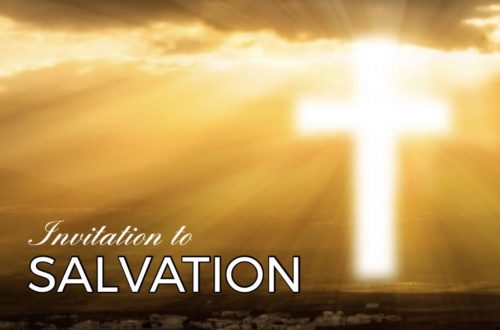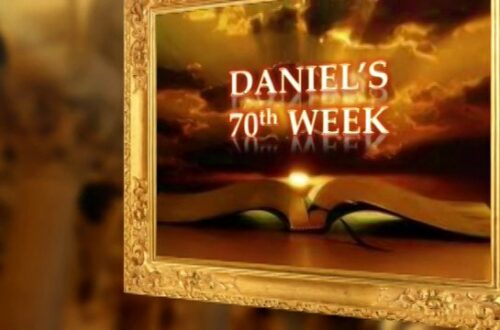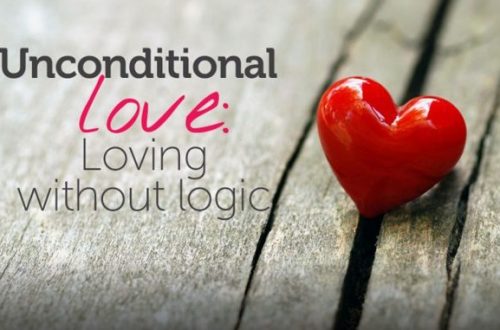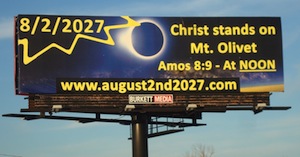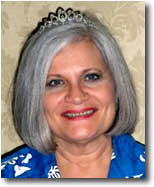-
True Story – ad Absurdum
“They invent ways of doing evil” – The Apostle Paul, Romans 1:30. This begins as a true story: When I was an outcast, oddball, “loser” in high school, bottom of the pecking order and always in danger of getting picked on or beat up, I came up with the idea of pretending to be a Satan worshiper. I found this could be helpful to me in several ways: 1. It made people think twice about picking on me. 2. It brought me the attention I craved as an awkward, outsider teenager. After all, any attention is good attention. Now let us imagine a nightmare scenario. (Think along the lines of…
-
Slavery and Abortion in a Nutshell
“Righteousness exalts a nation, but sin is a disgrace to any people.” Proverbs 14:14 In these most recent heated debates, I thought some food for thought might be appropriate: SLAVERY existed in America for about 300 years. It is possible that up to Approximately 60 million human beings died in and due to the American version of slavery during that time.[1] Half the country believed they were “free” to own slaves and that it was their “right.” (Constitutional right, certainly. God-given right even.) Many argued that blacks and Africans were not even human beings but were property. Who were others to tell them what to do with their own property?…
-
The Humanist Manifesto, the Religion of Leftism and Progressivism
“Children, it is the last hour, and just as you heard that the antichrist is coming, so now many antichrists have appeared” (1 John 2:18). Few seem to realize that much of the division in the United States and the West is a clash of religions: It is the clash between the remaining vestiges of the Judeo-Christian worldview and the rise of godless Humanism. I will not try to argue that America is a Christian nation; it is not. If it were, we would not have aborted 60 million of our own children and sacrificed them to the gods of self and sexual “freedom”.[1] If America were a Christian nation,…
-
Imagine There’s No Lennon
“Imagine there’s no heaven. It’s easy if you try. No hell below us, above us only sky…” I find the above one of the saddest thoughts ever put to music. Unfortunately this song has become the Humanist theme song. At the beginning of the Covid-19 pandemic and shutdown, a bunch of celebrities decided to sing this song acapella and share it with the world… for some reason. Why? It is a melancholy, hopeless song… at least on the surface. And John Lennon is dead. Imagine there is no heaven, no place where people finally find rest from a life of toil and struggle, pain and sorrow. Imagine there is nothing…
-
What is Art, Anyway?
When my dear friend Laura Helms told me about integrating her biblical worldview with how she teaches high school art, I was fascinated and asked her to write about her approach. For the last nine years I have had the privilege of teaching visual arts in the public school system here in Texas. Each year I start off with one question on the board: “What is art?” Students give a wide range of answers but they usually land somewhere near the phrase “art can be whatever you want it to be.” This year I laid out an assortment of objects ranging from pottery to paintings to piles of trash that…
-
What Did the Philosophers Know and When Did They Know it? Part 2
Jesus told Pilate, “For this reason I was born, and for this reason I came into the world – to testify to the truth. Everyone who belongs to the truth listens to my voice” (John 18:37). “Therefore see to it that the light in you is not darkness” – Jesus (Luke 11:35). While skimming a book I’d previously read entitled “The Great Philosophers: From Socrates to Foucault”, a quick summary of influential philosophers, I was sometimes struck by the darkness and futility of their ideas. Yet I was open to seeing truths that might be found within the shadows so to speak. I gleaned what truthful ideas I could from…
-
Do Things Happen for a Reason, or By Chance? Brief Answers from Christian, Modern and Postmodern Worldviews
In The Year of Living Biblically A.J. Jacobs, general editor of Esquire magazine, writes, “Julie [his wife] always told me that things happen for a reason. To which I would reply, Sure, things happen for a reason. Certain chemical reactions take place in people’s brains, and they cause those people to move their mouths and arms. That’s the reason. But, I thought, there’s no greater purpose.” We all long to know where our lives in particular and history in general are going. Does everything happen by chance? Or is God directing the course of human events with purpose? Are our lives part of a larger story (a meta-narrative) that’s going…
-
A House Divided
“If a house is divided against itself, that house will not be able to stand” (Mark 3:25). The headlines recently, in America, were certainly unsettling for a news and commentary junkie like myself. The United States seemed to be imploding, committing suicide on live television. For some time now I have believed that we are witnessing the self-destruction of the United States. I often think of the words of Abraham Lincoln, who said, “America will never be destroyed from the outside. If we falter and lose our freedoms, it will be because we destroyed ourselves.” History will show whether this proves true or not. On Friday morning July 8th, many…
-
How do we speak from failure with integrity?
We who follow Jesus have a high calling. And often a high privilege of telling others about him and his way of life, equipping or simply encouraging them on their journey. But we are all sinners, desperately in need of God’s saving grace. So when our lives haven’t aligned with the way of Jesus how do we decide if we still should speak (or write) about following Jesus in that way? For example, How can we best honor Jesus and speak with integrity to our children about sexual purity if we were not sexually pure? Or should we counsel and minister to other couples about how to have…
-
An Open Letter to the New York Times Editorial Board: Maybe There Is a “Why” for ISIS and Evil?
From “The Fundamental Horror of ISIS” 10-2-14: "Comparisons are meaningless at this level of evil, as are attempts to explain the horror by delving into the psychology or rationale of the perpetrators…as Roger Cohen, the New York Times columnist, wrote in a recent piece about ISIS, there is no “why” in the heart of darkness." (“Yet, in the end, there is no why to the barbarism of ISIS. There is no why in Raqqa. Evil may adduce reasons; they fall short.”–Cohen)—New York Times Editorial Board Dear Editorial Board, I commend your tacit admission that none of the usual subjects can explain the YouTubed beheadings, the systematic rape of…





